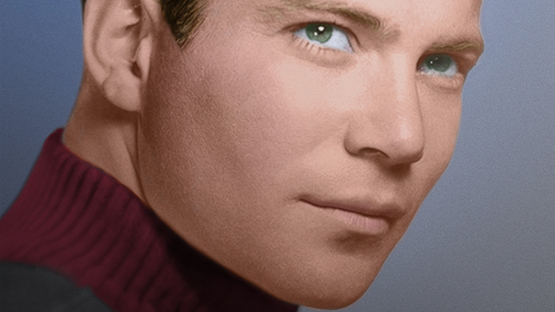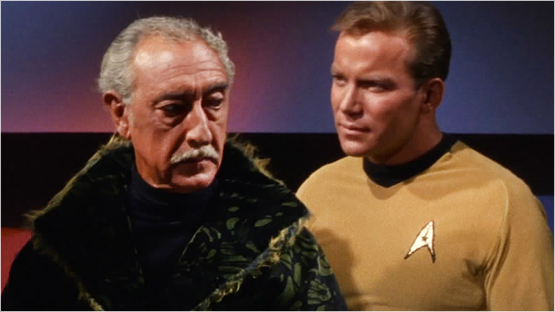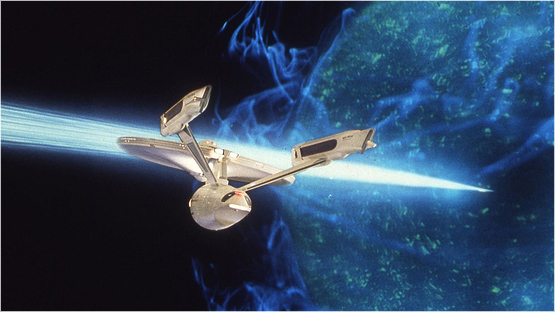The Autobiography of James T. Kirk chronicles the greatest Starfleet captain’s life (2233–2371), in his own words.
From his birth on the U.S.S. Kelvin, his youth spent on Tarsus IV, his time in the Starfleet Academy, his meteoric rise through the ranks of Starfleet, and his illustrious career at the helm of the Enterprise, this in-world memoir uncovers Captain Kirk in a way Star Trek fans have never seen.
Kirk’s singular voice rings throughout the text, giving insight into his convictions, his bravery, and his commitment to the life—in all forms—throughout this Galaxy and beyond.
Excerpts from his personal correspondence, captain’s logs, and more give Kirk’s personal narrative further depth.
Order The Autobiography of James T. Kirk:
While James T. Kirk is arguably Starfleet’s “greatest captain,” we haven’t gotten his life story in his own words… until now.
Thanks to his editor, David A. Goodman, and the application of some “wibbly-wobbley timey-wimey” stuff, you can now read The Autobiography of James T. Kirk right from the horse’s mouth!
The book itself is laid out in a chronological fashion, with Kirk’s childhood and early years comprising the early chapters and his later Starfleet career making up the majority of the book.

Revealed are his experiences on Tarsus IV during the massacre by Kodos the Executioner and the events that led him to apply to Starfleet Academy, all the way up to the days leading up to his disappearance during the maiden voyage of the Enterprise-B in Star Trek: Generations. The conceit is that this memoir is published posthumously, with a touching foreword by Leonard McCoy and an afterword by Spock of Vulcan.
It’s a fairly quick read, with Kirk moving quickly from one event to the next. If there is any kind of main throughline to the story, it is Kirk’s attempts to balance his personal life with his professional life as a Starfleet officer.
Time and again, he must sacrifice his sustaining of a relationship or any semblance of a “normal” life in order to chase his best destiny: command of a starship. From that one woman from far in the past who touched his life, Edith Keeler, to Carol Marcus who ends up being the mother of his son, Kirk struggles to find love and ultimately winds up married to his career above all else.

One fun thing that this book does is to link disparate parts of Kirk’s life together, bringing deeper meaning to what were once small “throwaway” lines in Star Trek episodes and films. Additionally, in what will likely prove to be a controversial choice for many Trek fans, David Goodman deals with the inconsistencies in Star Trek V: The Final Frontier in a very unique way.
Another great touch was the addition of “editor’s notes” throughout the narrative that lent a feeling of verisimilitude to the pages of the book. Little things that Kirk gets wrong in the book that are “corrected” by the editor make this feel like a real autobiography. Also, a full color insert of pictures in the middle of the book from Kirk’s life, including his Academy graduation photo and travel documents to Tarsus IV, lend even more credibility.
I definitely preferred the parts of the book where an effort has been made to expand on or create new events in Kirk’s life, rather than rehashing what we already knew. There are some interesting insights to be gleaned here, and Goodman’s writing kept me interested throughout the book such that I finished it quite quickly, reading through it in a couple of evenings.

If you are interested in learning more about the process of writing this book or further insights from the author on his experience in creating Kirk’s backstory, please check out the latest episode of Literary Treks, in which I and co-host Matthew Rushing talk to David Goodman at length about this book!
Final thoughts:
From reading The Autobiography of James T. Kirk, it’s very clear that David A. Goodman knows his stuff. He captures the unique voice of Kirk in the pages of the book, and his relationships with those around him feel very real.
I would have like the book to go more in depth in some of the areas we know less about, but Goodman does a very good job in balancing what we know with new material. There are some very clever choices made in this book that made me grin, but that might make other fans dislike the direction he takes.
Unfortunately, you can’t please everyone, but I think that Goodman has crafted an entertaining life story for our intrepid captain, and this volume will have a place on my bookshelf.
